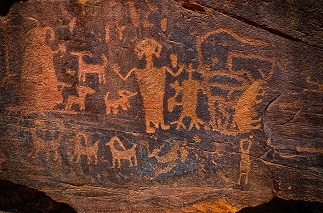Posts

Influence of institutional seniority and type of ownership on university quality rankings: correlational analysis of Peruvian universities
This study evaluates the correlations between the universities' type of property (public, private associative and private corporate), institutional seniority (<20, 20–45 and >45 years) and the presence and position in national and international university rankings. It considers 90 Peruvian universities certified by SUNEDU (public agency for the accreditation of universities in Peru). According to their presence in 20 university rankings (yes/no) and the position (tertiles) in two world rankings: Webometrics and SIR Iberoamericano, four universities participated in 10 or more rankings and only 16 (18%) in six or more. The private corporate universities were the least old (p < 0.01). No association was found with the type of property both in the presence in rankings and in the positioning (p > 0.05), except in one where there was less participation of public institutions. Long-lived universities had higher participation and better positioning in rankings than those with less seniority (p < 0.01). The presence and better positioning in university rankings depend on institutional seniority and not on the type of ownership in Peruvian licensed universities. This research highlights the lack of equity in several international rankings for the evaluation of the quality of universities, in the respect that most of them give priority to aspects related to institutional seniority and size. At the same time, the results of younger and smaller institutions are not put into perspective.

Information Quality in Latin American Digital Native Media: Analysis Based on Structured Dimensions and Indicators
The current communicative ecosystem has profoundly transformed journalistic work and the media, generating with great eagerness the emergence of digital native media that do not follow the logic of their conventional peers. Although the advent of these media is not entirely negative, as they create multiple voices that contribute to pluralism, their quality has undoubtedly been questioned on several academic fronts. This work analyzes the most important Latin American digital native media by number of accesses (traffic), using a taxonomy of evaluation of dimensions of the informative quality, in which aspects such as informative sources, uses of international news agencies, correction of contents and factuality levels, ideological plurality in their opinion contents, among others, are taken into consideration. Of the emerging results, the ‘use of statistical indicators’ was the least rated (32.5%), mainly due to a lack of data journalism in the media studied. It is also worth noting that the indicator ‘comments and monitoring’ obtained the second-lowest rating, indicating an absence of conversation between the media and its audience through the comments section of each content.

Decolonizing matrices in the communication to enter into a dialogue with the West
This paper examines the premises of decolonization in the Communication Studies and practice that challenges the West civilization based on the critical thinking of precursors and contemporary intellectuals of Latin America. The principles and values of communication and life are recovered for the constitution of a study and the exercise of intercultural communication for well-living, evidencing the need for an alternative communication epistemology based on matrices formulated by authors such as Luis Ramiro Beltrán and Erick Torrico under the premise of “liberation communicology” against the progress-mercantilism and the modernity of communication. This approach focuses on the horizontality and the circularity of the communicative process, and above all in the recovery of its ontological and integral level in the study-knowledge and exercise of communication. Philosophy and the Amazon do not claim the annulment of the way of reasoning and the Western procedure, the embargo, the search for dialogue and respect for indigenous wisdom and community life. Consequently, unity in diversity is sought, understood as the comprehensive understanding of the thought of communicative communication, demonstrating the need to establish a dialogue of knowledge between indigenous wisdom and knowledge of the West, assuming as a challenge to urge to live in harmony between human beings and nature, where communication is the link for the study and practice of the culture of life.
